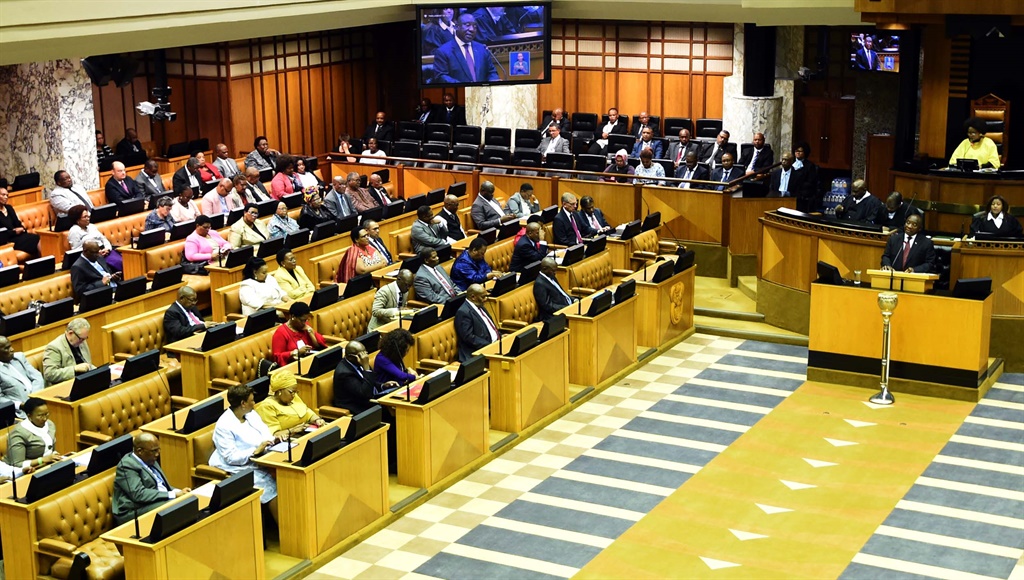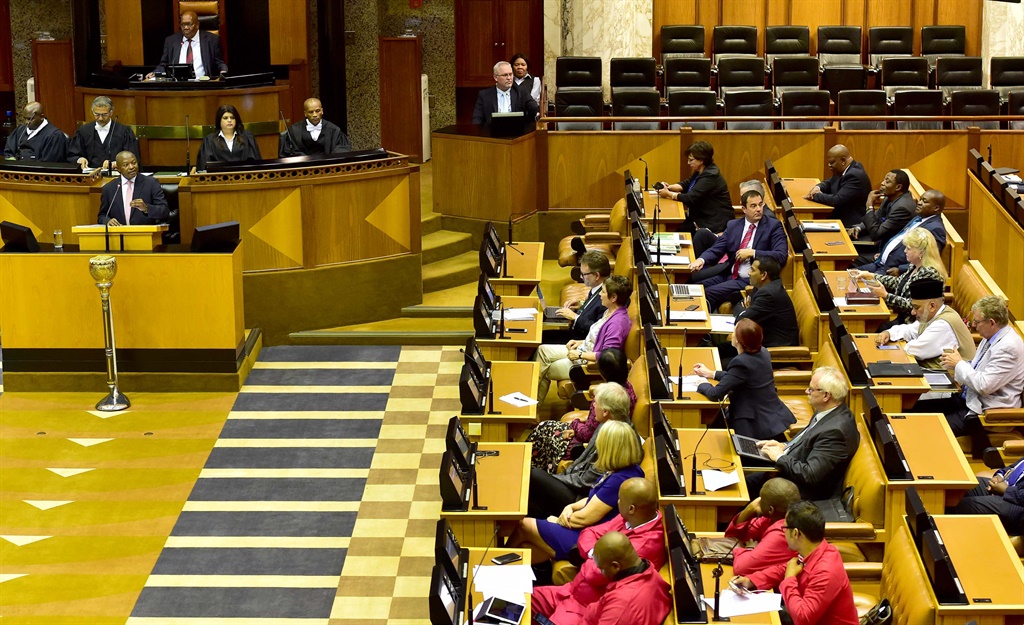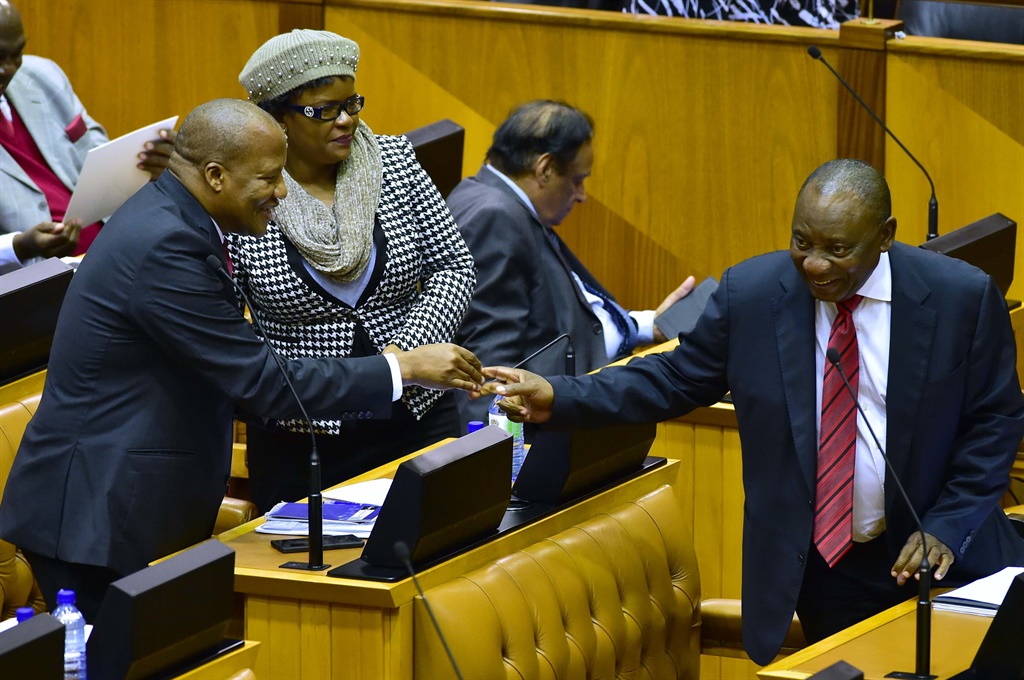- The virtual Parliament generally has been capable of providing a national forum for debate.
- While the high-profile amendment to Section 25 had to be put on hold, the legislature passed the budget and adjusted budget.
- MPs from the governing ANC will have to pull up their socks as far as executive oversight is concerned.
While the Covid-19 pandemic forced Parliament to change the way it works, it is not an excuse for MPs from the governing party to shirk their oversight responsibility.
Over the past four months, Parliament has had to change the way it does its work due to the Covid-19 pandemic.
To continue its work, it went online, like many other legislatures across the world, and held committee meetings through virtual conferencing and hybrid sittings.
The second term came to an end on Tuesday, when the National Council of Provinces passed the adjustment budget.
Now might be a good time to look back and assess whether Parliament has done its job.Apart from electing the president, Parliament has three jobs:
- providing a national forum to consider issues in the public interest;
- passing legislation; and
- "scrutinising and overseeing executive action", as the Constitution puts it.
The job that probably comes easiest to MPs is providing a national forum. Politicians love talking. A politician who will pass up the opportunity to hear his or her own voice, is a rare breed.
Whether they have anything to say, is a whole other matter, though.
Oftentimes, the less an MP has to say, the longer he or she will speak. The virus hasn't affected parliamentary verbosity – one can speak as much, and say as little, through a virtual platform as in the committee room or the house chamber.
Naturally, the topic foremost in everybody's mind is the pandemic and no meeting or sitting has passed without the pandemic's pall cast over it. And the phrase "the new normal" has been used ad infinitum.
There was also a debate on another matter of national interest, namely gender-based violence.
And snap debates on rural safety, asked for by the DA, and Black Lives Matter, asked for by the EFF, have been scheduled for when the constituency period is over.
National Assembly Speaker Thandi Modise is also considering the DA's request to have a snap debate on Covid-19-related corruption.
So, Parliament has done its job in providing a national forum during the pandemic, so far.
READ | Covid-19: National Assembly speaker to consider DA, EFF's proposals to deal with corruption
In fact, it probably increased accessibility for the public, as much more of Parliament's work was streamed online on the easily accessible social media platforms YouTube, Facebook and Twitter.
Parliament's media team also deserves a word of thanks for ensuring that the Fourth Estate was plugged into the virtual Parliament.
Passing legislation
The pandemic put a halt to what will probably be the most notable piece of legislation that was expected to come out of Parliament this year: the amendment to Section 25 of the Constitution to allow for land expropriation without compensation.
The committee drafting the amendment couldn't complete its nationwide public participation process before the country went into lockdown.
It had a deadline of 29 May, and the committee was allowed to lapse when it failed to meet this deadline. However, to opposition parties' surprise the ANC insisted on the committee's re-establishment, and with the support of the EFF and some smaller parties passed such a motion in the National Assembly.
The deadline is 31 December, but don't be surprised if it is extended.
Parliament's main legislative task this past term was passing the budget, the pandemic and the subsequent urgency to pass an adjusted budget to respond to the pandemic. Parliament made what appears to be sensible adjustments to how it usually handles this process.
OPINION | Covid-19 and the opposition: It's a game of politics
It meant, though, that departments delivered legislatively required presentations to committees about plans and budgets they knew were going to change.
When this tedious process was done, committees heard about the effect budget cuts would have on the departments. Be that as it may, the budget and the special adjusted budget were passed, and Parliament did its job.
Executive oversight
By its nature, it is in opposition parties' interest to conduct stringent oversight.
The catch is when it has a sizeable majority, proper oversight over the executive doesn't happen without the governing party playing ball.
READ HERE | MPs need to ask 'unpleasant, sharp' questions of the executive - Speaker Thandi Modise
It's just too easy to flex your majoritarian muscle and scupper the opposition's attempts to do their job.
Just recall how Parliament dealt with Nkandla, to name but one instance. While the situation has improved after the March 2016 Constitutional Court ruling on Nkandla, which embarrassed several ANC MPs, and the party's poor showing in the municipal elections later that year, the ANC still treats oversight at best as an afterthought, and at worse by actively shielding the executive or defer to ministerial diktat.
Its own internal Machiavellian machinations are often the determining factor. However, there were some wins for oversight during this past term, for instance:
- The Standing Committee on Public Accounts (Scopa), who is inquiring into one of the first instances of emergency procurement, the fence at the Beitbridge border post and who launched a full-scale investigation into the many years of maladministration and just plain old looting at the Department of Water Affairs. This committee is chaired by the IFP's Mkhuleko Hlengwa.
- The Portfolio Committee on Communications asserting its authority after Communications Minister Stella Ndabeni-Abrahams' flagrant attempt to tell Parliament what to do with regards to the appointment process of the Icasa council.
- The Portfolio Committee on Trade and Industry finally insisting the National Lotteries Commission (NLC) release its beneficiaries lists, after months of frustrating DA MP Mat Cuthbert's attempts to obtain the lists and hold the NLC accountable.
- The Portfolio Committee on Health kept a close eye on the pandemic, which included oversight visits, and Health Minister Zweli Mkhize often answered MP's questions, whether in committees, sittings of the National Assembly or National Council of Provinces or in writing.
While the wins are nothing to be scoffed at, when everything is considered, Parliament's oversight wasn't what it should be. And one can't blame it on the way Parliament had to function during the past term.
You can't mute the Constitution.
The general trend from the ANC, amid much waffling about the "new normal" and lobbing sweetheart questions at the executive, was to close ranks and complain about political point-scoring when opposition MPs asked tough questions.
Of course, there was a lot of political grandstanding, particularly from the DA and EFF, but that doesn't negate Parliament's constitutional duty to exercise oversight.
An extreme example of this was, soon after Parliament resumed, when the ANC contingent on the Joint Standing Committee on Defence appeared more concerned about interim DA leader John Steenhuisen tweeting President Cyril Ramaphosa's letter informing Parliament of the SANDF's deployment – a public document – than the allegations of brutality levelled at the soldiers.
Another example would be the Portfolio Committee on Police, where the DA's and FF Plus' concerns over the appointment of the executive director of the Independent Police Investigative Directorate (IPID) was dismissed by ANC MPs through accusations that they did not support women's emancipation, were not honest, and didn't want an IPID head so that a forceful eviction in Cape Town – in which a naked man was removed from his residence – would not be investigated properly.
They also accused them of being spokespersons for Corruption Watch and the Helen Suzman Foundation. It appeared clear that the ANC MPs on the committee were ready to rubber stamp Police Minister Cele's nomination for IPID head.
This committee also allowed Cele to be in breach of the IPID Act since March, when on two occasions it extended the deadline to nominate the new IPID head.
OPINION | Covid-19 crisis: The choice is to oppose or resist
A legal opinion it obtained after the fact said it didn't have the power to do that. It does appear that this was a watershed for this particular committee, that has since resolved to amend the IPID Act to strengthen its hand in the appointment of the IPID head versus that of the minister.
The committee also wants Cele to explain why he didn't meet the deadline, and it took exception at the little time allowed for them to interrogate the annual crime statistics and reminded Cele of their duty to exercise oversight.
National Coronavirus Command Council
Perhaps the biggest failure of oversight during this past term is over the functioning of the National Coronavirus Command Council (NCCC).
Little of what we know about the NCCC's functioning was brought to light in Parliament. Most of what we know has been revealed in court papers.
ANALYSIS | Parliamentary oversight: Stella cut down to size, but 'unlawful' Cele looms large
Ramaphosa responded very briefly to written questions on the NCCC, while a key minister in the state of disaster, Cooperative Governance and Traditional Affairs Minister Nkosazana Dlamini-Zuma, responded to a string of written questions by claiming she doesn't have the information available.
This is odd since she managed to find the information when she had to file court papers. While Parliament doesn't have the right to amend the lockdown regulations, it surely could have done more to interrogate the ministers responsible for it and the NCCC's motivations and reasoning, which could conceivably have helped to iron out some of the inconsistencies in the regulations.
It appears that ANC MPs were happy to leave this to Cabinet and then defend the ministers' actions.
This highlights the need for an oversight committee over the Presidency – something the DA has called for repeatedly over the years. Perhaps such a committee should be chaired by an opposition MP, as is the case with Scopa, to safeguard the committee against a chorus of imbongis or being used in the governing party's internal battles.
A more short-term solution could be the EFF's suggestion for an ad hoc committee to oversee all Covid-19-related expenditure. But a similar suggestion by the DA was shot down earlier in the lockdown.
Meanwhile, the allegations of Covid-19-related looting mounts. While the ANC caucus expressed its disgust about this, it is ultimately up to them to turn the situation around in terms of oversight when Parliament resumes in two weeks' time.




 Publications
Publications
 Partners
Partners
























